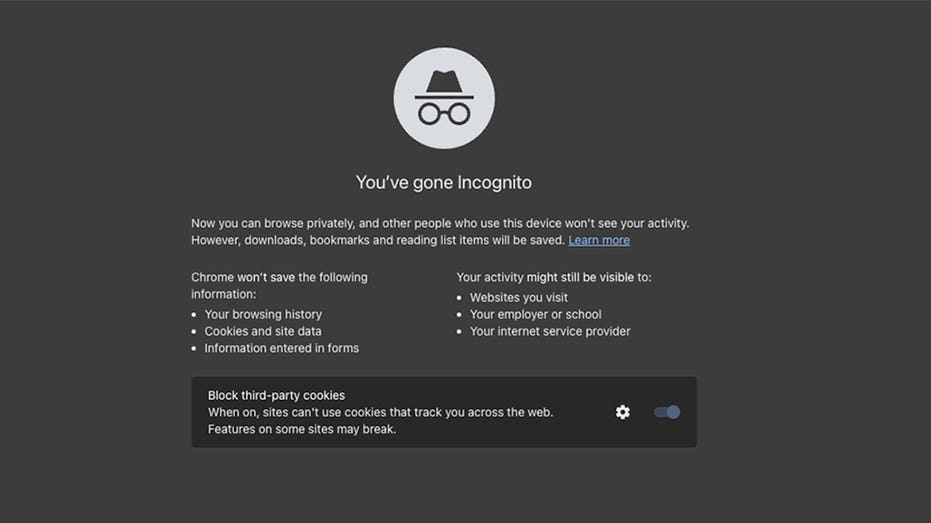Google to destroy billions of records to settle consumer privacy lawsuit
Google users accused the company of improperly tracking their private browsing
Employees weren't surprised to see Google Gemini's 'ideological bent,' reflection of company culture: Francesca Block
"The Free Press" reporter Francesca Block weighs in on the company culture at Google and the impact of D.E.I ideology.
Google will delete billions of data records to settle a class action lawsuit that accuses the company of secretly tracking internet users who thought they were browsing privately.
In documents filed in federal court in Oakland, California on Monday, Google reached a settlement with plaintiffs who alleged the Alphabet-owned company's analytics, cookies and apps let it improperly track users in its private browsing, or "incognito" mode. Google spokesman Joe Castaneda said the lawsuit was meritless, and that Google was pleased to reach the settlement.
"We never associate data with users when they use Incognito mode," Castaneda told Reuters. "We are happy to delete old technical data that was never associated with an individual and was never used for any form of personalization."
Lawyers for the plaintiffs valued the accord at more than $5 billion, and as high as $7.8 billion. Google is paying no damages, but users may sue the company individually for damages.
GEMINI FALLOUT: FORMER GOOGLE EMPLOYEE WARNS OF ‘TERRIFYING PATTERNS’ IN COMPANY'S AI ALGORITHMS

The Google logo is seen on the Google house at CES 2024, an annual consumer electronics trade show, in Las Vegas, Nevada. (REUTERS/Steve Marcus / Reuters Photos)
The agreement must be approved by U.S. District Judge Yvonne Gonzalez Rogers.
The class action lawsuit was filed in 2020 by plaintiffs representing millions of Google users who used private browsing since June 1, 2016.
APPLE, GOOGLE, META TARGETED IN EU'S FIRST DIGITAL MARKETS ACT INVESTIGATIONS

In this photo illustration, the Google Chrome logo is seen displayed on a laptop screen. (Rafael Henrique/SOPA Images/LightRocket via Getty Images / Getty Images)
Google's incognito mode promises that none of users' browsing history, cookies, and site data or information entered in forms are saved on their device. When a user closes an incognito window, Google's Chrome browser discards any site data and cookies associated with that browsing session, according to Google Chrome's support page.
But users alleged that Google's data collection turned the company into an "unaccountable trove of information" by letting it learn about their friends, favorite foods, hobbies, shopping habits, and the "most intimate and potentially embarrassing things" they hunt for online.

Screenshot of the incognito mode message most users still see when using Google Chrome. (Fox News Screenshot)
The settlement requires Google to update disclosures about what data it collects from users in incognito mode, a process it has already begun. Google will also let private browsing users block third-party cookies for five years, Reuters reported.
"The result is that Google will collect less data from users' private browsing sessions, and that Google will make less money from the data," the plaintiffs' lawyers wrote.
GET FOX BUSINESS ON THE GO BY CLICKING HERE
David Boies, an attorney for the plaintiffs, said in a statement the settlement is "a historic step in requiring honesty and accountability from dominant technology companies."
A preliminary settlement was reached in December, averting a scheduled Feb. 5, 2024 trial. Terms were not disclosed at the time. The plaintiffs' lawyers plan to later seek unspecified legal fees payable by Google.
Reuters contributed to this report.





















